
|
|
In Memory's Eye Recollections of Canadian Parliamentarians Prime Ministers How little linkage existed between Canada and Ireland in the middle part of the twentieth century may be garnered from my own knowledge of Canada, largely formed on Hollywood portrayals-Nelson Eddy and Jeanette Macdonald in "The Northwest Mounted Police", singing "Rose Marie" and "Ten Stout Hearted Men". Despite the fact that I occasionally handled foreign news when subbing in "The Irish Press", a Dublin daily newspaper, items emanating from Canada were extremely rare, so rare that when I decided to come to Canada I wasn't quite sure whether Diefenbaker was the Prime Minister of Canada or South Africa. I learned more about Canada on my first flight by Trans-Canada Airlines from Shannon to Montreal than I had ever known previously, thanks to a special insert in one of the English dailies and conversation with my seat companion, a gentleman named Lambert, a representative of the Moore's Business Forms company. The insert dealt mainly with a recent wheat deal reached between Canada and China, and the role played in negotiating it by a Canadian government minister, one Alvin Hamilton. When I did become a member of the House of Commons staff the first thing that struck me about its proceedings was how tied were the hands of the government. Lord, how things have since changed! Its procedures were far, far behind those operating in the Oireachtas, the Irish Parliament, where I had, so to speak, cut my parliamentary reporting teeth in the Dáil and the Irish Senate. The government was locked into rigid time constraints in dealing with matters of supply, i.e. getting approval from Parliament to spend the necessary moneys to keep government and, most particularly, the Public Service, operating. On a number of occasions when supply was about to run out, civil servants in Ottawa actually worried whether they would get their next paychecks on the due date. Headlines in the Ottawa Journal and Ottawa Citizen regularly focused on their fears. The government of the day lacked the will to use its most drastic weapon, closure. There had been hell to pay when cloture, to use its parliamentary term, had been invoked to end the historic pipeline debate a few years earlier.
Diefenbaker had both loyal followers and determined enemies. His life story has been told many times. This brief personal summation cannot possibly do justice to the man. But in one respect it is given without qualification or reservation. As related in a previous section of this web site:
In memory's eye he still has presence. In his later years he bore a great resemblance to a wise but irritated old owl, head swivelling as he glared down at the fledglings below.
He had had a distinguished career as a diplomat before entering politics. Winner of the Nobel Peace Prize for his work during the Suez Canal crisis in 1952 when British and French troops invaded Egypt, he had an aura of statesmanship that did not migrate easily into the fray of party partisan politics. Indeed his first months as Liberal party leader were a disaster. The story of his naiveté in proposing a motion that Diefenbaker, after winning the 1958 General Election, should resign office and turn over the government to the defeated Liberals, has been a staple of political historians ever since. But, and it a major but, after that Pearson became the most astute politician to practise the art of the possible under the daily scrutiny of the media, press, television, and radio, during his years in office. Unprepossessing in appearance, hampered by a speaking voice that had difficulty articulating the letter "s" without lisping, and seldom provoked to passion, Pearson during his relatively short Prime Ministership introduced some of the most advanced social legislation ever to take root and blossom in Canada. He gave the nation visible identity. For better or for worse, he tackled the emerging issue of bilingualism with results not even the most perceptive could foresee. The first tentative step had been taken by his political enemy, Diefenbaker, who, when in power, had instructed that federal payroll cheques should appear in bilingual format, at the time hailed as a revolutionary step. Pearson, by appointing the B&B Commission, (Commission on Bilingualism and Biculturalism) ploughed a deeper furrow and planted seed that grew into a Public Service mandated to provide service in English and French where population numbers warranted the use of either or both languages. Pearson, a hockey nut, played Parliament like a professional. He would introduce some issue guaranteed to become a firestorm of debate, and while the Opposition were fighting in one corner of the rink, he sent two or three bills straight down centre ice, practically unnoticed. While debate raged on such issues as the removal of the Union Jack and its replacement with the Maple Leaf as the national flag of Canada, little attention was paid to measures with more far ranging consequences. The National Health Care Act, the Canada Pension Plan, and the role of the Armed Services as international peacekeepers, were but a few of the measures Pearson fostered, all the while keeping a low personal profile. The politics of personal charisma lay some years ahead. The portrait of Pearson which hangs in the foyer of the House of Commons is an accurate reflection of the man. There is no commanding presence. He sits as he sat in the Commons, somewhat slumping in his seat, a man seemingly without guile, giving no sign that what he sowed would grow into a transformed Canada even he might not recognise. There he sits, a product of his age, the son of a Methodist minister.
I almost forgot. He was a baseball nut too. His record as political hockey scorer and baseball home run hitter is without equal to this day. He would have been a fatherly coach in both sports.
Pearson prevailed on Trudeau and two of his friends to play an active role on the national scene by becoming members of the Liberal Party and running for election to the Parliament of Canada. Trudeau, Jean Marchand, and Gerard Pelletier, dubbed "the three wise men from Québec", were duly elected, and Trudeau served in Pearson's final cabinet as Justice Minister. His debut in the Commons was inauspicious. He displayed none of the fiery oratory embraced by Marchand, a lovable man of the people. Pelletier occupied himself with promoting the use of French. Of Trudeau little was known, except by the parliamentary security staff who became accustomed to the long hours he sequestered himself in his office on Parliament Hill, often being the last at night to quit work. Suddenly he dove into public consciousness when he unveiled the results of his long nights' work, titled "A Canadian Charter of Human Rights", and made a ringing declaration that the state had no place in the bedrooms of the nation. Shortly afterwards, when he ran to succeed Pearson as leader of the Liberal Party and Prime Minister, he became the darling of the nation's mothers and their daughters, and an inspiration to teenagers of both sexes. His athleticism, his well photographed high dives into swimming pools, his vitality, physical and mental, left opponents floundering in his wake. There was a generation gap which they could not close, and Canadians opted for the new sensation from Québec. From his entry to the Commons in 1962 until his departure in 1982, I had the remarkably unique experience of observing the man in action, either from the Hansard reporters' desk on the floor of the Commons Chamber, scarcely six feet from where he sat, or from the Hansard editor's chair in the Press Gallery. Trudeau treated the Opposition with scarcely concealed disdain. And they hated it. It was more by manners and body language that he drew their ire. He was no orator, and the set speeches he read from prepared text were delivered in a droning monotone. But he revelled in the thrust and parry of the daily Question Period. His quick wittedness saw him deflect the most pointed queries, once or twice leaving opponents, including the masterful Diefenbaker, fuming in their seats. On one memorable day he didn't even have to speak to set the Opposition benches in an uproar. He mouthed an expression that would have been completely outside the bounds of good taste and parliamentary decorum had he spoken it. Later he quipped that he had merely said "fuddle duddle". He was right about the first letter "f", but the second word was "you". It is an irony that his unspoken words achieved the same status of the memorable, but completely erroneous phrase, "What's a million?" attributed to an earlier minister, C.D. Howe. For sixteen years Trudeau dominated the Commons. He took a certain pride in swimming against the current of public opinion. Decades before the disparity between rich and poor nations became a hot topic, he advised that unchecked growth in wealth and consumerism in a nation such as Canada would lead to envy and distrust among the poorer peoples of the earth. It was not a popular view then, and it still isn't popular. Trudeau was one political leader who did not court popularity, but Canada was proud to boast of having a Prime Minister who, having intellect and personal magnetism, held his own among the world leaders of his era. On a personal note, harking back to his early days in Parliament, I had kept a copy of his first major offering, the proposed "A Canadian Charter of Human Rights" among my files. When the actual Charter became law on April 17, 1982, as part of the Constitution Act 1982, signed by Her Majesty Queen Elizabeth II, and by three Ministers of the Crown from Québec, Trudeau, Jean Chrétien and André Oullet, I had sent that original copy, slightly aged by time, to him for his signature on that date. Nothing happened until January 10 1985 when it was returned to me by his office, signed as requested, with an accompanying note reading:
Trudeau had another connection with Hansard which may be viewed in the Official Report of Debates. The incident arose when he was challenged on the veracity of what he had said a day earlier in Question Period. In his reply he paid tribute to the common sense exercised by the Hansard editor. Not too many people have been accused twice in their lifetime of possessing that rare commodity, the first time by Nobel Peace Prize winner Seán MacBride, Minister for External Affairs in the Government of Ireland, in a completely different context, and the second time by a Prime Minister of Canada. Maybe they both were suffering bad hair days. On reopening that prized copy of Trudeau's "A Canadian Charter of Human Rights", something of the span of his intellectual approach is shown in Chapter I where the first name he mentions is Cicero, followed by St. Thomas Aquinas, Locke, Rousseau, and then goes on to quote what he calls "the memorable words of the American Declaration of Independence":
Among the appendices attached to his proposed charter he included the "Convention for the Protection of Human Rights and Fundamental Freedoms" signed at Rome on November 4, 1950. The person shown as signing it on behalf of the Government of the Irish Republic was none other than the aforementioned Seán MacBride! Like the salmon, King of Fish, Trudeau safely navigated the political and natural riverway rapids of Canada for many seasons before returning to die in Montreal, the headwater of his birth place. A question remains. Was it his wry sense of humour, or his personal feeling about the role of Governor General, that lay behind his appointment, first of Edward Schreyer, Manitoba Premier and once Leader of the New Domocratic Party, and later of Jeanne Sauvé, controversial Speaker of the House of Commons, to that position?
Selected leader on June 6 1984, he called a General Election to be held on September 17 1984, just sixty-seven days after taking office. His party was defeated by the Progressive Conservatives led by Joe Clark, and he was condemned to sit as Leader of the Opposition for the remainder of his years in Parliament. Turner's performance in the House was, at best, uneven. Although a lawyer by profession, his speeches were delivered in staccato bursts, allegro followed by pianissimo, unsettling the attention of his listeners. As he spun out his days in Opposition one could see the toll taken by two abortive attempts to regain power, beaten first by Clark and later by Mulroney. He is best remembered for his spirited defence of Canadian sovereignty issues when attacking what he foresaw as the consequences of the Canada-United States Free Trade Agreement. Turner played piano at Christmas parties held by his Liberals each year on Parliament Hill. He played well.
I have chronicled his career in the Canadian Vindicator e-zine on a previous occasion, and can do no better than reproduce what I wrote in 2002 shortly after he announced his decision to retire from active political life: "He aspired to greatness. He overcame adversity. He won respect. For a time he occupied the highest position in the land. He persevered in the face of great odds. He displayed great courage. He was betrayed. Joe Clark withstood derision for exercising poorly timed and ill advised political judgment, but no one questioned his personal integrity. In his many years in public life there was never a whiff of scandal. His years of service to the people of Canada were marked by a determination to do his best in whatever capacity he was working at any given time. Nowhere was that determination better displayed than in his role as parliamentarian. The House of Commons was an institution he revered. In it he achieved the ultimate recognition which only the House accords, and then only to a precious few, that of "a House of Commons man". Whatever the future holds in store for him, and circumstances may demand that he postpone his intended retirement, Canada and Canadians owe a debt of gratitude to Joseph Charles Clark, a very Right Honourable Gentleman." In these reminiscences I feel compelled to add one or two further notes. What came through to one reporting his speeches on the floor of the House was his sincerity. Here was a man apparently without guile, who believed in what he was saying and was able to get that conviction across to his hearers, or to readers of the printed record. Unfortunately for him, lurking in the political wings was one "with lean and hungry look.", impatient to take his turn on the political stage, ever thrusting, ever plotting, scheming and manipulating both within the elected and unelected members of the Conservative Party. Unfortunately for him he had a Minister of Finance who had a passion for overreaching phrases, some called them Crosbieisms, and who presented a Budget to the House which he described as "short term pain for long term gain". Unfortunately for him he faced one of the most astute party politicians ever to sit in the Commons, whose knowledge of its rules and customs had no counterpart in government. Unfortunately for him the Budget was defeated, and in the ensuing General Election his party was defeated by a resurrected Trudeau, resurrected at the behest of Alan MacEachen, the master of a thousand rules and precedents. Joe Clark remained a Member of the House of Commons long after most of his foes either quit or were forced off the stage. Along the way, reputations were shredded, but never once was his personal reputation aspersed. Would that others could have the same said of them! Like a long distance runner who once led the pack, his political stamina stood the test of time, and he persevered until he crossed the finishing line still on his own two feet.
Untried, unproven, largely unknown outside a well cultivated "circle of friends", he was to place his stamp on Canadian politics, and on Canada itself, during the nine years he presided as master of the Progressive Conservative Party, leading it to two consecutive majority governments in the General Elections of 1982 and 1987. Having observed the loosely reined ministers of Diefenbaker bringing "the Old Chief" down, he was determined to avoid a similar fate. A succession of foul-ups by ministers during his first years in office saw those ministers fired on the spot. As the years passed, there was never any question about who was in control. Mulroney ruled. In the Chamber his mellow, fine tuned voice was a delight to those of us charged with the task of reporting the debates. Fluent and at ease in both official languages, for a time he dazzled political friend and foe. After some time the voice yielded to the tongue. If there was a bridge too far, Mulroney reached for it. An added phrase, an excess of verbiage led him into pitfalls and bog holes that a more experienced parliamentarian could have avoided. Unlike Trudeau, whose French-Scotch ancestry cooled his temperament, Mulroney's French-Irish ancestry had the opposite effect. Grown men who experienced his displeasure physically cringed. I remember seeing two members of his Cabinet wandering in a daze, pole-axed in mid career, when they were abruptly dismissed. It is much too early to chart the course, indeed courses, taken by Brian Mulroney during his reign. His craving for popularity, affection, admiration, led him in many directions. He had a conviction that he was destined to be the one to answer the question long bedevilling Canadians: "What does Québec want?" In his quest for the answer he co-opted a number of Québec separatists to his ranks, the most famous of the lot being Lucien Bouchard. Twice he convened Federal-Provincial conferences in an attempt to entice Québec to sign on to the new Canadian Constitution of 1982. Twice he failed, and unable to give his new Québec recruit what he wanted, saw Bouchard resign in a huff, return to Québec and eventually become Premier of a provincial government dedicated to establishing Québec as an independent state. Many reasons have been advanced for Mulroney's loss of popularity among the Canadian people. As a parliamentary reporter a personal observation may not come amiss. Listening to a public figure day after day, week after week, the ear grows attuned to variations in tone, senses when a strange note intrudes, and when something doesn't sound quite right. Toward the end of Mulroney's years in office that ear detected that the voice did not believe what the tongue was saying. Mulroney had lost his ability to convince others. He had even lost the ability to convince himself. From great heights he descended to great depths. His desire to be all things to all people, at one time Canadian, one time Irish, one time Québecois, led him to an extraordinary vaudeville farewell as he toured the earth seeking farewell encomiums from the world leaders of the time, a video of which was played at his final party convention. His successor paid dearly for the distrust he engendered among the voting public. The greatest stumbling block Mulroney encountered in his career was the rejection of the Meech Lake Accord which he had personally engineered as a proposed amendment to the Constitution, one which would lead to Québec's acquiescence to becoming a signatory to the Canadian Constitution Act of 1982. Followers of the negotiations will recall Mulroney exulting that the Accord "was good for Québec," adding "and good for Canada." It was another example of the phrase too far. Québec was foremost in his thinking. Two things led to its undoing. In Clyde Wells, the Premier of Newfoundland, Mulroney encountered a Canadian well versed in constitutional law who foresaw that the price to be paid for Québec acceptance was too high. By arrangement, all the Provinces had to pass legislation by a date certain in order for the Accord to be ratified. As the days passed, the arguments for rejection that Wells placed in front of the House of Assembly in St. John's had a powerful effect, not only in his own province but among people in other provinces. In Manitoba, the legislature, as with all other provinces, had its own rules and procedures governing the introduction of government sponsored motions. That led to a curious twist in the road to rejection. Unanimous consent was required for such a motion to be accepted for debate. One member refusing unanimous consent meant that the matter could not come before the legislature . Day after day the Government House Leader would seek unanimous consent. Day after day one member of the legislature, holding an eagle feather in his hand, silently refused his consent. Elijah Harper, who at the time became the strongest voice of Canada's aboriginal peoples, by his silent refusal stopped the Accord from coming before the legislature. The aboriginal peoples had long been suffering from the perceived insult in refusing them participation in the federal-provincial conference that produced the Meech Lake Accord. They saw it as the latest in such slights suffered by them at the hands of white newcomers who had ignored their inherited rights in the land of their forefathers. As matters turned out, Newfoundland's House of Assembly voted to reject the Accord, and the Manitoba Legislature bowed to the eagle feather held day after day by Elijah Harper, thus ensuring its members did not have to vote on rejection or acceptance of the Accord. The final sentence at page 220 of "The Hansard Chronicles" published in 1980 to celebrate the centenary of Hansard in the Canadian House of Commons, read: There was delicious irony in the spectacle of two former Hansard reporters, Bourinot and Thompson, sitting in the Chamber within a few feet of each other, the Clerk of the House of Commons, and the Prime Minister of Canada. Who knows what Hansard has yet to offer the nation? The Government House Leader in the Manitoba legislature on that famous occasion in 1992 was the Honourable James McCrae, Minister of Justice, a former member of the Hansard reporting staff in Ottawa, whose experience in the House of Commons led him to became an acknowledged master of parliamentary procedure. When he introduced the government motion in the Manitoba legislature he was fully aware that it required unanimous consent. Mulroney, who became an instant Prime Minister without previous experience in Parliament, had either forgotten or never knew that the provincial legislatures had their own governing rules and procedures. Of such apparent trifles is history made.
In Campbell's case she had an electrifying effect on one man, the one she would succeed as Prime Minister. Mulroney was sitting at his desk in the Chamber when Campbell rose to her feet. It was a normal courtesy extended to neophytes by party leaders. Campbell seized the occasion to her future advantage. She spoke in French. Mulroney's head snapped around and he gave her his complete attention. What had the political gods given him? A westerner, a woman, and an apparently flawless bilingual one at that. In hindsight Campbell had taken her first step to the Prime Ministership. In the party leadership campaign which followed Mulroney's resignation, Campbell garnered surprisingly large support over seasoned party political veterans and waltzed into the Langevin Building as Prime Minister in very short order. She was the only Canadian Prime Minister never to sit as Prime Minister in the House of Commons. Within weeks she called a General Election. When the results came tumbling in, only two Progressive Conservatives made it into Parliament, long distance runner Joe Clark, and newcomer Elsie Wayne from New Brunswick. Humiliation was complete when Campbell lost her own seat in Vancouver. The Campbell campaign was a disaster. Her handlers, a crude term for political campaign managers and other assorted clods, were gormless. Some called them idiots. I prefer the Irish term, eejits. On July 1, Canada's national holiday, they arranged a cross-country flight with Canada's own Tinker Bell touching down at airports from one end of the country to the other, shining and radiant, to the joy of assembled multitudes. Airports are built some distance from highly populated city centres. The people in those centres kept their distance and celebrated Canada Day as they had always done. Her handlers learned a hard lesson. Airports don't vote. People vote. The Campbell campaign flew high and wide, and crashed when its fuel ran out, its tanks drained by the previous pilot. Aside from her maiden speech, Campbell's career in Parliament went almost unnoticed. One hopes that her successors, and there will be women elected future Prime Ministers of Canada, choose wiser advisers.
Surprisingly, he was plucked from obscurity by Pierre Trudeau who appointed him as his Parliamentary Secretary in 1965, and six months later passed him on to Mitchell Sharp, the Minister of Finance, to act as his Parliamentary Secretary. Sharp took the awkward young man under his care, and over time turned him into a remarkable malleable politician worthy of ministerial rank. As Liberal government succeeded Liberal government, Chrétien successfully became Minister of National Revenue, Minister of Indian Affairs and Northern Development, President of the Treasury Board, Minister of Industry, Trade and Commerce, Minister of Finance, Minister of Justice and Attorney General and Minister of State for Social Development (three posts all at once), Minister of Energy, Mines and Resources, and lastly Deputy Prime Minister and Secretary of State for External Affairs, an impressive resumé covering the nineteen years between 1965 and 1984, truly the embodiment of Shakespeare's' "one man in his time plays many parts". In all Chrétien wore the mask of twelve different departments, but underneath each mask the face remained the same, and his political ambitions flamed higher and higher. Through sheer longevity and personal smarts he in turn fostered other newcomers, building a base of power and influence strong enough to carry him to second place on the ballot to replace Pierre Trudeau at the Liberal Party convention where John Turner emerged winner. It was the best thing that could have happened to Chrétien at that stage of his political career. It was left to Turner to be trampled under the Mulroney juggernaut, and after a spell serving as External Affairs Opposition critic, Chrétien resigned from Parliament to seek lucrative employment in the private sector. His return to Parliament coincided with the Mulroney Tories' implosion. Chrétien's Liberals won majorities in three successive elections, and during his eleven years as Prime Minister the one-time self-styled "little guy from Shawinigan" appointed a total of 77 members of the Senate of Canada, a modern-day record. Writing solely from the perspective of a Hansard annalist, Jean Chrétien deserves respect for the tenacity he displayed in his early days in Parliament when he persisted in speaking English until he achieved some measure of fluency in that language. One of the worst examples of downright bad manners that I recall was the mimicry of his speaking habits by an Ontario Tory member who garnered a few cheap laughs from his colleagues. That member has long since faded away, and the last laugh is surely deserved by Chrétien. An example of Chrétien's own wit was the occasion when he found himself with one of his staffers at a Christmas party. The staffer had brought his father along with him, and introduced his Dad to Chrétien, who insisted that the three of them be photographed together, and promptly dubbed the picture, "Father, Son, and Holy Ghost". Chrétien's ghost will continue to haunt Parliament for many, many years after his retirement.
Home | About | Canadian Vindicator | Literature | Gallery | History
|
||||||||||||||||||||||||||||||||||||||||||||||||||||||||||||||||||||||||||||||||||||
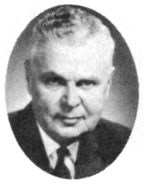 This may have coloured my first impression of John G. Diefenbaker as Prime Minister -- that he lacked decisiveness. Later that impression was reinforced when he faced troubles within his cabinet. Reluctant to sack ministers, he allowed cliques to form, egos to grow, and cabinet members began to resign on what they considered matters of principle. Had he acted promptly, had he sacked one or two at the start, the traces would not have become tangled and he might have driven the coach of state for years, eyes front, and not looking over his shoulder to see who was seeking to throw him down.
This may have coloured my first impression of John G. Diefenbaker as Prime Minister -- that he lacked decisiveness. Later that impression was reinforced when he faced troubles within his cabinet. Reluctant to sack ministers, he allowed cliques to form, egos to grow, and cabinet members began to resign on what they considered matters of principle. Had he acted promptly, had he sacked one or two at the start, the traces would not have become tangled and he might have driven the coach of state for years, eyes front, and not looking over his shoulder to see who was seeking to throw him down.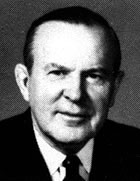 Lester Bowles Pearson was the second Canadian Prime Minister whom it was my privilege to observe and report daily as a member of the Hansard staff on the floor of the House of Commons.
Lester Bowles Pearson was the second Canadian Prime Minister whom it was my privilege to observe and report daily as a member of the Hansard staff on the floor of the House of Commons.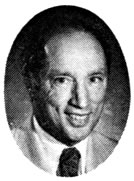 Pierre Elliot Trudeau succeeded Pearson as Prime Minister. Had it not been for Pearson, Trudeau might have remained a remote figure on the fringes of Québec politics, an academic destined to argue philosophically about democracy and human rights within a narrow circle of friends, free from the responsibility of taking any active part, save that of critic, and participant in events surrounding a much publicised strike by asbestos strikers in that province.
Pierre Elliot Trudeau succeeded Pearson as Prime Minister. Had it not been for Pearson, Trudeau might have remained a remote figure on the fringes of Québec politics, an academic destined to argue philosophically about democracy and human rights within a narrow circle of friends, free from the responsibility of taking any active part, save that of critic, and participant in events surrounding a much publicised strike by asbestos strikers in that province.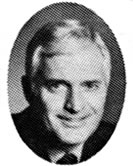 Following on Trudeau as leader of the Liberal Party came John Napier Turner, one of the ill fated stars in the Canadian political firmament.
Following on Trudeau as leader of the Liberal Party came John Napier Turner, one of the ill fated stars in the Canadian political firmament.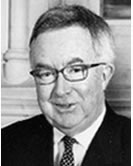 Hard on the heels of the ill fated Turner came Joseph Charles Clark, one of the most intriguing figures ever cast up on the shores of Canadian politics.
Hard on the heels of the ill fated Turner came Joseph Charles Clark, one of the most intriguing figures ever cast up on the shores of Canadian politics.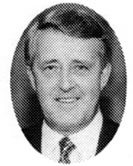 Martin Brian Mulroney was a long-time backroom operator from his days as a university student wending his way through the Saskatchewan riding of the Hon. Alvin Hamilton as an assistant during the 1958 General Election. He made his first appearance on the floor of Commons Chamber as the Prime Minister of Canada. It was a unique debut. He hadn't served a single day as a Member of Parliament before that.
Martin Brian Mulroney was a long-time backroom operator from his days as a university student wending his way through the Saskatchewan riding of the Hon. Alvin Hamilton as an assistant during the 1958 General Election. He made his first appearance on the floor of Commons Chamber as the Prime Minister of Canada. It was a unique debut. He hadn't served a single day as a Member of Parliament before that.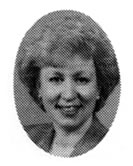 Kim Campbell was Canada's first female Prime Minister. I vividly recall her maiden speech in the House of Common. Elsewhere I have written that elected representatives come in all shades and sizes, from all walks of life, all cultures, and backgrounds. The individual reporter never knows what each election may produce. Maiden speeches in Parliament may provide a clue.
Kim Campbell was Canada's first female Prime Minister. I vividly recall her maiden speech in the House of Common. Elsewhere I have written that elected representatives come in all shades and sizes, from all walks of life, all cultures, and backgrounds. The individual reporter never knows what each election may produce. Maiden speeches in Parliament may provide a clue.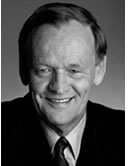 Joseph-Jacques Jean Chrétien was the least likely entrant to membership in the House of Commons to become Prime Minister of Canada. Anyone who remembers his first attempt to address the House in English, let alone his mother tongue French, would have been clairvoyant beyond belief. Fresh faced, gangly, youthful, with a speech impediment that Hansard and Press Gallery reporters alike found difficulty interpreting, he seemed destined to become nothing more than another backbencher, the best he could hope for being a fill-in Parliamentary Secretary in a junior portfolio.
Joseph-Jacques Jean Chrétien was the least likely entrant to membership in the House of Commons to become Prime Minister of Canada. Anyone who remembers his first attempt to address the House in English, let alone his mother tongue French, would have been clairvoyant beyond belief. Fresh faced, gangly, youthful, with a speech impediment that Hansard and Press Gallery reporters alike found difficulty interpreting, he seemed destined to become nothing more than another backbencher, the best he could hope for being a fill-in Parliamentary Secretary in a junior portfolio.